Dateline: Gurugram | Tuesday, October 14, 2025 (IST)
Lead: In a stern message to errant vendors ahead of the festive rush, the Municipal Corporation of Gurugram (MCG) has fined Deswal Construction Company ₹57.5 lakh for substandard, delayed road re-carpeting in Malibu Towne (Sector 47), while also warning of blacklisting if defects aren’t fixed within strict timelines. Inspections this month recorded poor bitumen laying, inadequate compaction and safety lapses, officials said. The project—valued at ~₹5.75–5.8 crore, awarded in February 2025, and slated to run into early January 2026—has become a litmus test of the city’s willingness to enforce quality clauses on public works.
What Exactly Happened
According to official notices and press accounts, MCG engineers who visited the site in early October found erosion on freshly laid stretches, inconsistent bituminous layers, and signs of improper compaction on critical segments. Repeated instructions to rectify defects prior to—and after—the monsoon reportedly went unheeded, prompting the corporation to levy liquidated damages approximating 10% of the contract value and to issue a final warning: fix the work to specification or face blacklisting/termination and recovery of rework costs.
MCG officials added that the penalty aligns with a broader push to tighten compliance across civic works and that no leniency would be shown to agencies compromising on infrastructure quality. Malibu Towne, brought under MCG jurisdiction in 2022, spans ~204 acres and serves 10,000+ residents, magnifying the public impact of premature road failures.
Residents’ Complaint: “New Asphalt, Old Problems”
Resident Welfare groups documented potholes resurfacing within weeks of overlay, uneven shoulders, and barricading lapses that extended traffic disruptions. Visuals shared with ward officials and local representatives show ravelling at the edges of carriageways and water pooling after light showers—classic symptoms, civil engineers say, of inadequate thickness, poor drainage, rushed curing, or weak base preparation. Calls grew for third-party testing, daily progress dashboards, and enforceable defect liability repairs with independent labs certifying the mix design and compaction levels before payments.
The demand for greater accountability is not isolated to Malibu Towne. In Sector 45, internal roads crumbled within a year of being laid, with residents citing quality gaps and slow corrective action—another reminder that specifications on paper do not always translate into durable pavements on the ground.
Why Roads Fail Early: The Engineering View
1) Thin or Non-Uniform Overlays
Bituminous macadam (BM) and bituminous concrete (BC) layers must meet design thickness and density. Skimping can slash life expectancy, especially on busier residential arterials.
2) Inadequate Compaction & Mix Control
A hot mix needs the right temperature window and compaction effort. Cold spots, poor rolling patterns, and segregated aggregates cause weak bonds—leading to early ravelling and rutting.
3) Drainage & Shoulder Integrity
Without shoulder hardening and cross-fall drainage, water infiltrates base layers; edges fracture under wheel loads. Drainage fixes before overlay are non-negotiable.
4) Traffic Management During Works
If traffic runs on fresh layers sooner than specified, it shears the surface, especially under bus/truck loads at turns.
5) Quality Assurance & Testing
Robust QA/QC demands core tests, density checks, and bitumen content verification—preferably by third-party labs—before interim payments.
MCG’s own policy tends toward innovation in bituminous works—including mandatory use of plastic waste in bituminous roads within contract clauses. When adhered to, such mixes resist water stagnation and potholing better and can cut long-term maintenance. But the spec must be executed—and certified—faithfully.
Why This Penalty Matters Now
The Malibu Towne penalty follows multiple, publicized actions by local agencies to discipline road contractors. In July 2025, the Gurugram Metropolitan Development Authority (GMDA) fined a contractor ₹99 lakh for delaying repairs of nine master roads—signalling cross-agency impatience with missed deadlines and quality lapses.
Meanwhile, enforcement around air-pollution controls—especially GRAP rules during bad-air spells—has seen fines and challans where construction housekeeping fell short (uncovered material, track-out dust, etc.). The quality of road works intersects directly with urban air quality: failed overlays and unpaved shoulders generate PM10 dust, worsening health outcomes and AQI during low-wind periods.
The Contract Story: Timelines, Scope, and Gaps
Per notices and reports, the Malibu Towne contract was awarded Feb 2025 (valid Feb 11, 2025 – Jan 7, 2026), with scope including BM/BC layers across internal stretches. Inspections on Oct 6–7 flagged poor quality; instructions to redo sections went unmet, leading to the present penalty and final notice. The risk now—if defects persist—is blacklisting, contract reassignment at contractor’s risk & cost, and accelerated recovery of damages from payable bills.
What the City Should Do Next (Actionable Steps)
A) Radical Transparency: “No-Excuses” Dashboards
- Daily public logs: stretches completed, mix temperature, density, core results, and photos.
- GIS-tagged test points: before/after values plotted for each chainage.
- Payment gates: auto-triggered only when third-party results meet spec.
B) Shoulders & Drainage First
- Harden shoulders before overlays; ban parking on raw margins.
- Fix gully inlets/kerbs and cross-slope to keep water off the mat.
C) Traffic & Safety Discipline
- Barricading and cure periods enforced with penalties for violation.
- Wheel-wash at material entry points; covered transport for hot mix.
D) Contracting Reform
- Weighted quality score in tender evaluation (past 3-year performance).
- Defect-liability bonds encashable on failure within 24 months.
- Independent Engineer (IE) model on high-value urban packages.
E) Community Oversight
- RWA-nominated citizen observers to witness random sampling.
- Dedicated grievance channels with 72-hour rectification SLAs.
Voices From the Ground
- MCG official (name withheld): “We’ve issued the penalty and a final notice. If the pace and quality don’t align with the agreement, we will proceed as per contract—including blacklisting and recovery.
- Resident, Malibu Towne: “Overlay peeled in weeks on some patches. We want test reports and a daily plan—no more ‘we’re working on it’. Deliver, or replace the vendor.”
- Independent pavement engineer: “Failures scream mix-design and compaction issues—plus drainage. Shoulders left raw create dust and edge breaks. Fix the basics; results follow.”
The Bigger Picture: Quality as an Air-Quality Measure
Poor roads don’t just slow traffic; they pollute. Each broken edge and unpaved shoulder is a PM10 factory. The Malibu Towne action, therefore, is not merely a contracting story—it is a public-health story. With NCR drifting into “poor” AQI windows this week, consistent dust control through better pavements, mechanised sweeping, and strict site housekeeping yields immediate benefits—often faster and cheaper than episodic emergency measures. (MCG’s GRAP-linked drives have previously penalised violators for construction-phase dust leakages—these must now be routine, not seasonal.)
Lessons from Past Projects
Gurugram has had cycles of laxity and tightening. Investigations and citizen complaints have, in the past, highlighted waived fines and questionable extensions on some road packages, fuelling scepticism about sustained enforcement. The present case will be watched for follow-through: Are defective stretches being milled and relaid to spec? Are lab results published? Is the payment withheld until compliance? These details build public trust.
What Success Looks Like—Three Tangible Outcomes
- Defect-Free Handover: Uniform, tested overlays with certified density and cross-fall, including thermoplastic markings and proper shoulders.
- Public Certification Pack: A downloadable bundle—mix designs, core logs, density sheets, photos, and IE sign-offs—so residents see what they paid for.
- Vendor Scorecards: Contractor performance published and scored; top performers gain priority in future bids, laggards face debarment.
Malibu Towne in Context
Two years after integration into MCG limits, Malibu Towne’s 18-km internal network has seen phased recarpeting plans and estimates of ~₹6.5 crore reported earlier, aligning with this year’s awarded package. The colony’s size and traffic profile—numerous entries/exits, school runs, and local commerce—place high stress on pavements. Visible, durable fixes here would set the tone for work pending in other sectors.
Editorial: Quality Must Be the Default, Not the Exception
The city’s message should be unambiguous: urban road work is not a box-ticking contract. It is public infrastructure that underwrites safety, commerce, and clean air. Penalising one firm helps—but the goal is systemic deterrence: procurement that rewards quality, transparent QA, citizen oversight, and swift penalties without negotiation. Done right, Gurugram can make “built to spec” as everyday as a traffic signal turning green.
#Gurugram #MCG #UrbanInfra #RoadSafety #Accountability #CivicIssues #Haryana #MalibuTowne #PublicWorks #QualityFirst







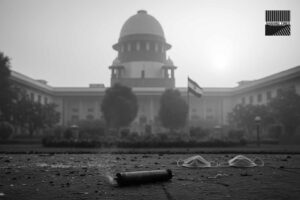



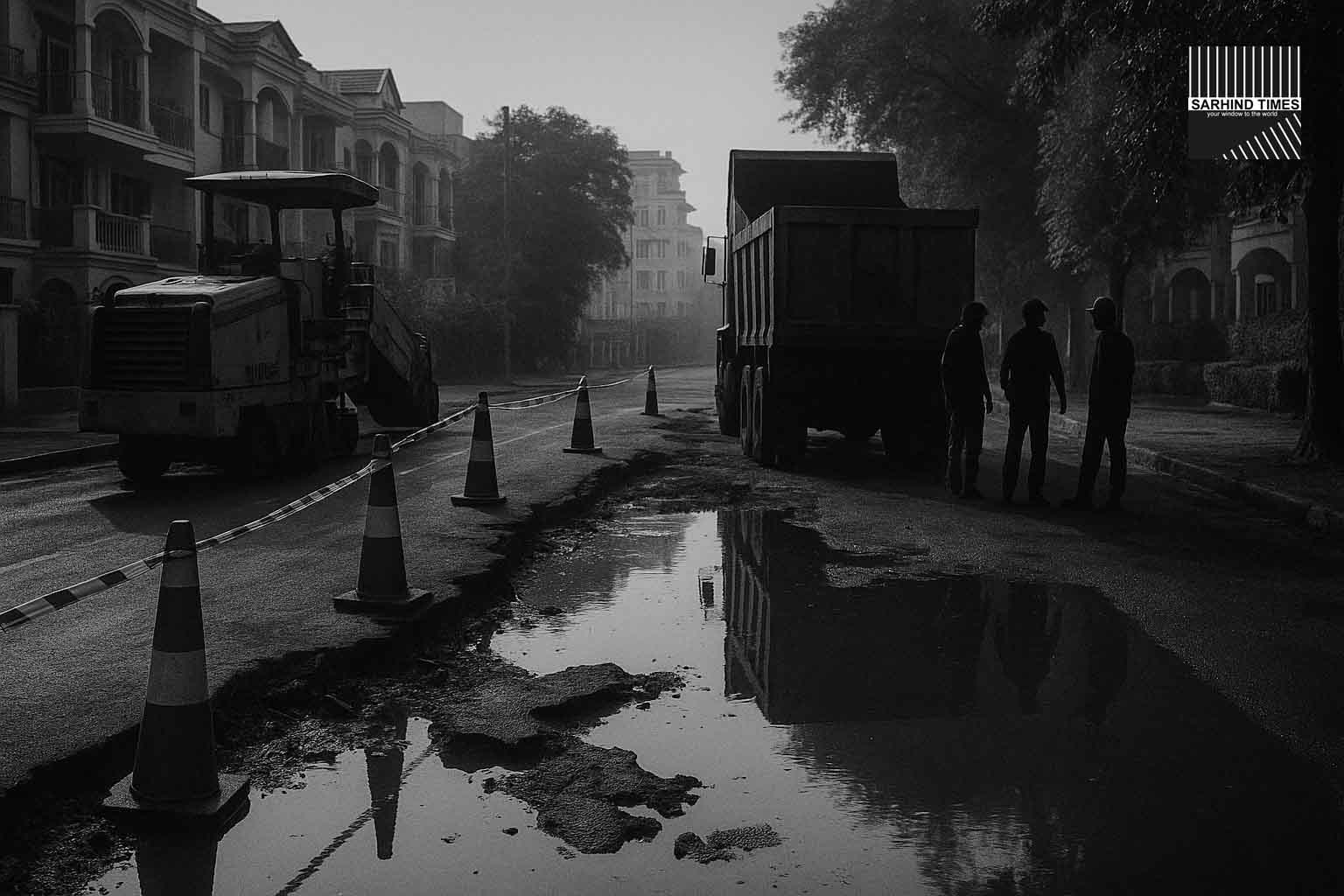
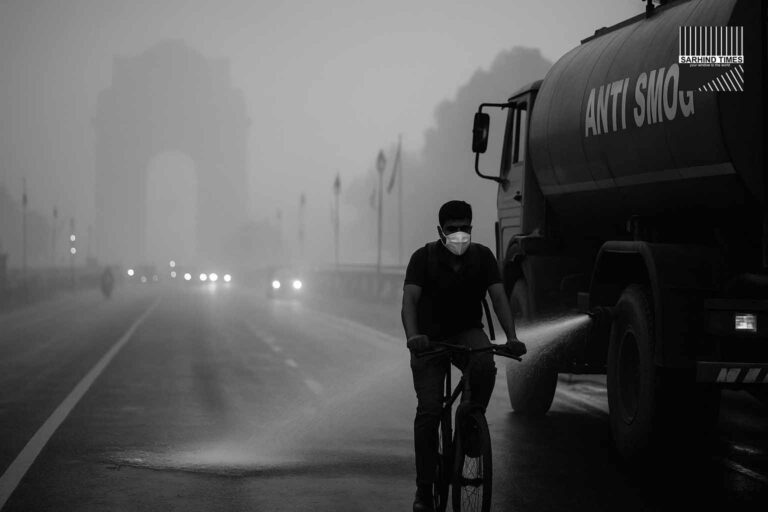
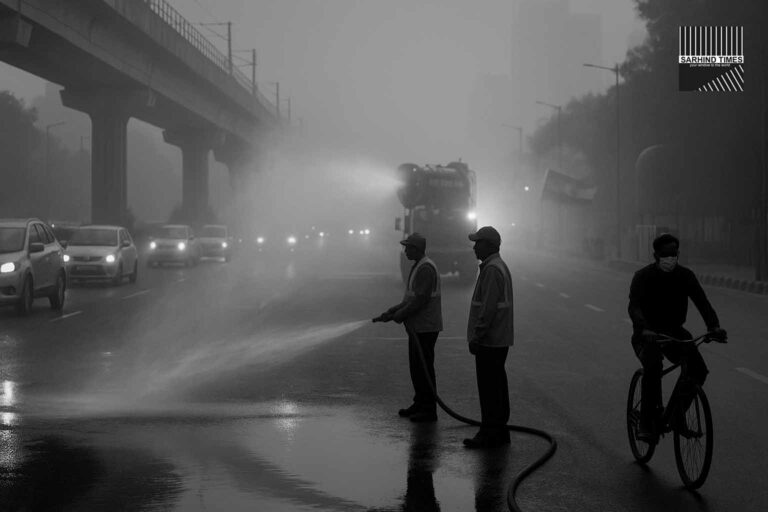





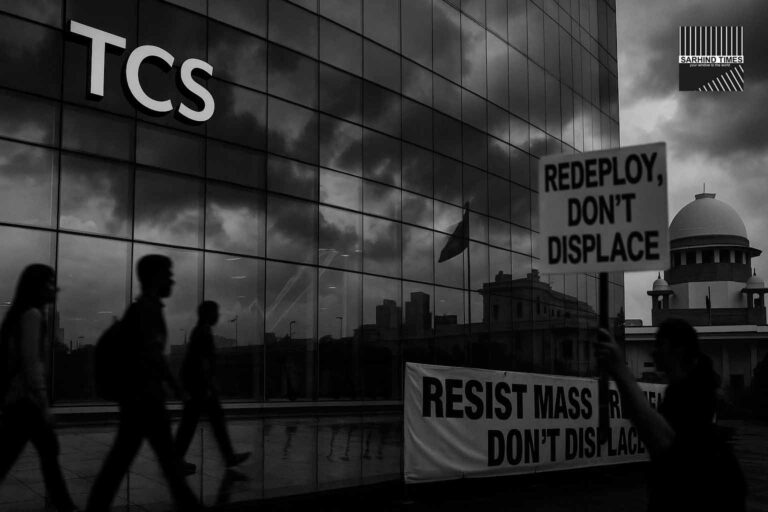

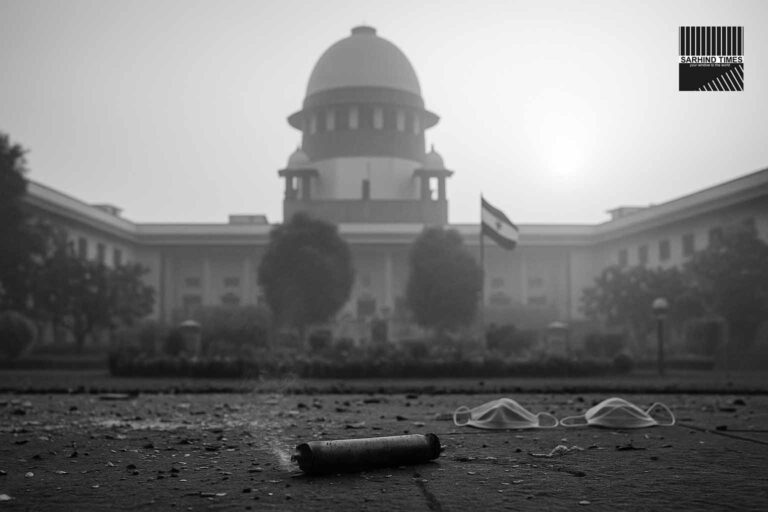
+ There are no comments
Add yours